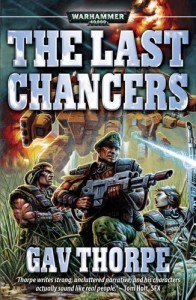World Building and Infodumps
 Recently I was contacted by Jon Schafer* with a writing question.
Recently I was contacted by Jon Schafer* with a writing question.
I see on the interwebs that you’re now entrenching yourself into an original fantasy work for the next few weeks. Exciting times for sure. But it does make it sort of an opportune time to pick your brains writerly wise. How do you balance world building, info dumping and pacing? Obviously you’ve come up with all sorts of details for all sorts of reasons but letting the reader know all of that detail will detract from the flow of the narrative. Magic systems seem the obvious one. They tend to need forward planning so they work consistently throughout the story but having someone explain how magic works can be boring. Similarly cultural/social conventions can be used really well to create interesting dynamics between characters but if they’re not typical to our standard human set up then they’ll need explaining to describe how and why they’re treating each other so differently.
To use the example in my current attempt at wordage, chapter 2 a god pays a mortal a visit. There are various rules and laws defining how the interaction works (rules being artificial restraints decided upon by the gods and laws being immutable restrictions) and my initial draft has all of these being discussed and whilst it sparked some thinking and refining of my ideas about how gods work it isn’t good writing even for me. There is a lot of fat to trim, but if I make it too lean maybe it’ll be less tasty/interesting or stop making sense. It is something I’m weighing up and considering and redrafting and I don’t know if you’re having to do similar right now with your own work, or with your Crown trilogy (I guess the BL work doesn’t matter so much as there is an extent to which knowledge can be assumed to exist in the audience) but if so maybe you’d have some thoughts to put down in a blog or something which could give me some guidance in working out my own troubles.
 *When I first met Jon at an event (Games Day probably) he asked me to sign his copy of a Last Chancers novel. One of the principle Last Chancers characters is Colonel Schaeffer, and I thought it strange Jon should ask for his novel to be dedicated to a fictional person within the work being signed. The following year when he asked for a different book to be signed to ‘Schafe’ things became clearer…
*When I first met Jon at an event (Games Day probably) he asked me to sign his copy of a Last Chancers novel. One of the principle Last Chancers characters is Colonel Schaeffer, and I thought it strange Jon should ask for his novel to be dedicated to a fictional person within the work being signed. The following year when he asked for a different book to be signed to ‘Schafe’ things became clearer…
A Need to Know Basis
Let’s get down to basics. As a writer you’ve probably spent a lot of time working out the world of your story or novel. It’s been with you for days, weeks, months or even years; when you were washing up, getting the bus to work, at 3am in the morning. You’ve put in a lot of effort to make it all ‘work’.
And now you want to tell someone how awesome it all is.
Which is fine. It really is. The attraction of genre fiction is to take us to new and wondrous (and terrifying) places, to meet different cultures, and to use them as a lens to examine ourselves, our societies and our world.
What the writer must bear in mind is that as much as genre readers want to explore strange new worlds and meet fascinating new people, they also want a good story. And that means crafting your tale in such a way that all of those cool parts of the world you want to show off are relevant – relevant to the characters and therefore the reader.
There are two ways to do this, either through the plot or through characterisation.
Plot is often the focus of a writer’s efforts, because we are terrified by the thought that something won’t make sense. It is seen as the backbone of the story, carrying it through from beginning to end in a seamless motion of cause-and-effect. It is not unusual for a writer, when faced with a problem, to run to the plot to solve it. In the example you give, it would be simple (not necessarily easy) to make one of the restrictions or laws of godly intervention a plot point. Something does or does not happen to the protagonist because of those restrictions. It immediately makes the metaphysical landscape of the world relevant to the ambitions of the character and reader.
 The downside is that readers almost expect this. ‘Aha!’ they think, ‘I better pay attention, this will be important later’. If it isn’t, they will be disappointed. They will wonder why you bothered to show them this thing in the first place. This is because they are expecting you, or rather the narrator, to tell them everything they need to know to navigate the world, plot and characters – but nothing else. Real life is full of inconsequential fluff we have to deal with on a daily basis; our stories are not. Drama is, to quote Hitchcock, “life with the dull bits cut out.”
The downside is that readers almost expect this. ‘Aha!’ they think, ‘I better pay attention, this will be important later’. If it isn’t, they will be disappointed. They will wonder why you bothered to show them this thing in the first place. This is because they are expecting you, or rather the narrator, to tell them everything they need to know to navigate the world, plot and characters – but nothing else. Real life is full of inconsequential fluff we have to deal with on a daily basis; our stories are not. Drama is, to quote Hitchcock, “life with the dull bits cut out.”
A far more satisfying but difficult route to take is to make the information relevant on a character level. Rather than telling us something about the world, which is abstract, it tells us something about the character, which is specific and personal. Rather than thinking ‘Aha! Plot point!’ our reader learns something more useful – an insight into a character.
To use the god powers example again, it could be how the god or the petitioner reacts to the laws or restrictions that defines the moment. In acceptance or opposition? Is the god a jobsworth or genuinely upset that further intervention is impossible? How desperate is our petitioner? How extraordinary, mundane or overwhelming is the incident of a godly visitation?
And ultimately, if there is no plot reason and no character reason for a reader to know a thing, don’t spend time and words introducing it. It doesn’t matter how cool or logical or essential it seems, if it doesn’t serve the story just keep it in the notes file.
The Naive Reader
So we’ve determined that we need to tell the reader something about the world and that their understanding of the characters and story will be richer for it. In this instance we are aided by a simple fact – the reader is naive about the world and actively wants to learn more. To facilitate that need we can create a similar naiveté in our character(s).
We do this by putting the narrator’s words into the mouths of the characters.
Exposition!
Yes, if done poorly this becomes exposition – characters expounding facts about the world or plot or other characters that they do not need to within the context of a scene, related for the reader’s benefit alone. This is why we deliberately create naive participants. We engineer the situation so that it is entirely natural for a character to raise the subject. Often this is couched as an inquiry – literally voicing the question that will be in the reader’s mind.
Margret looked up at the nebulous entity that had appeared in her living room.
“Are you a god?” she asked.
“Yes!” The voice came like the whispering of leaves and the thunder of running hooves. “I am Arulek of the One Horn.”
“Should I bow?” Margret was already bending at the waist.
“No need,” repied Arulek. “This is just a social call. Though if next time you could light a few votives before you pray, I would come sooner.”
Does our petitioner question a restriction, giving our god a chance to explain why unlimited intervention would be such a bad thing, because last time it happened the world split, wars were fought, magic appeared, etc, etc? Alternatively does the god complain about these immutable laws? Talking about the world like this must still serve the purpose of furthering the plot or deepening our understanding of the participants. It might all be in the delivery.
“I cannot make the rent,” explained Margret.
The godly cloud turned a melancholy blue.
“Alas, it is not for me to bestow worldly riches.”
As opposed to:
“I cannot make the rent,” explained Margret.
Angry lightning flickered through the god’s amorphous form.
“Vain mortal! You dare besmirch my favours by demanding worldly riches?”.
 Another way to get around the problem is with exposition-by-proxy. An anecdote, superstition or tic that illustrates a point. Our character might mention the time their brother forgot the holy incense and was left in a coma for three days, or relate the folk tale of the priest that tried to cheat on a deal with his god.
Another way to get around the problem is with exposition-by-proxy. An anecdote, superstition or tic that illustrates a point. Our character might mention the time their brother forgot the holy incense and was left in a coma for three days, or relate the folk tale of the priest that tried to cheat on a deal with his god.
Get the characters to test the boundaries of the world. They might already know something will or won’t happen but try their luck anyway. Real people do that all the time. It might just work…
The djinn appeared in a puff of smoke.
“She that freed me from the prison of the lamp shall have three wishes granted,” boomed the billowing apparition floating in front of Jeanie.
“My first wish will be for infinite wishes.”
“Sorry, no can do. And no killing, no time travel and no immortality while we’re at it.”
Jeanie sighed.
“Worth a try, wasn’t it?”
Do First, Explain Later (Or Not At All)
I flick a switch and the light comes on. I understand that this is because of a thing called electricity. I also know, in slightly vaguer terms, that there has to be a circuit for electricity to flow, and flicking the switch completes that circuit. There is also something about polarities, voltage, amps and a bunch of other stuff…
For the act of turning on the light, all I need to know is that the switch does it.
In terms of introducing our world to the reader we must first start with the immediate, tangible consequences. Flick the switch; light comes on. Speak the words; summon a god. Deactivate the shields; let in the storm.
And when that is done we must cleave to the narrative mantra that act begets reaction. Having done a thing, or a thing happening, the character must react to it. Thus the building blocks of the scene and the action are laid. By the time you have resolved the action and reaction you will realise that it’s too late to explain why the light came on, why a god appeared, how the shields keep the weather at bay. And the reader won’t care because the story has carried them on to the next action-reaction sequence. Only where it impacts the action (which might also be thoughts and dialogue, but we shall call it action for now) does a fact from the world assume any significance to a reader.
 The same is true for social conventions. One of the ways I judge how to write about this stuff is to step back out of fantasyland and think of an equivalent in the real world. Why do we shake hands? (You can Google the answers later.) Where did winking come from? Why say please and thank you, or what are the specific situations in which you address someone by their name, or title and name, or title only? Would you take the time to explain these if you were writing a story in our world?
The same is true for social conventions. One of the ways I judge how to write about this stuff is to step back out of fantasyland and think of an equivalent in the real world. Why do we shake hands? (You can Google the answers later.) Where did winking come from? Why say please and thank you, or what are the specific situations in which you address someone by their name, or title and name, or title only? Would you take the time to explain these if you were writing a story in our world?
Context is your friend. Readers will infer a great deal from what is happening, you don’t need to feed them every last detail. If a character always calls another character ‘Ma’am’ and then suddenly calls her Betsy we will understand that the moment is personal, informal.
Think about the sign of the cross used by Christians. It’s an odd thing really, particularly if you describe it in detail.
Jack raised his hand to his forehead and then moved it down to his abdomen, before gesturing to the left shoulder and finally the right shoulder, making the sign of a cross in reference to the crucifixion of his lord and saviour Jesus Christ.
That’s pretty complex already, but let’s add in an info dump for fun (cribbed from Wikipedia.)
Jack raised his hand to his forehead and then moved it down to his abdomen, before gesturing to the left shoulder and finally the right shoulder, tracing the traditional shape of the cross of the Christian Crucifixion narrative.
There were two principal forms of the gesture: the one—three fingers, right to left—was exclusively used in the Eastern Orthodox churches and the Eastern Rites of the Catholic Church of the Byzantine and Chaldean Tradition; the other—left to right, other than three fingers—was the one used in the Latin Rite of the Catholic Church, Anglicanism, Methodism, Lutheranism and Oriental Orthodoxy. The ritual was rare within other Christian traditions. [Insert explanation of who Jesus was and lose reader completely…]
Okay, that’s extreme, but we’ve all read, and sometimes written something like it, haven’t we? A simple word or two can provide all of the context you need.
Jack made a rapid sign of devotion, his hand moving in the sign of a cross.
The key words are ‘sign of devotion’. This is what we need to know about the character. Devoted. At this stage do we need to know what he is devoted to? Does the crucifixion matter to our understanding of the character? If we were to translate that into some other religious gesture from our imaginary world we would still leave the reader with the same necessary information.
Jaquer-Ell made a sign of devotion, his finger lifted to forehead in imitation of a solitary horn.
Or,
Jaque-Ell gestured, one finger becoming the sign of the sacred horn.
‘Horn’ already paints a picture for the reader without further description. If you wanted to include a little more information you can get away with it because the important part – the ‘what’ – is frontloaded. Having been given this insight the reader will allow you a little bit of ‘how’ and ‘why’.
Jaque-Ell made a rapid gesture of devotion, one finger flicking up his forehead in the sign of the horn of Arulek.
In this case I’ve dropped the ‘sacred’ because the religious nature of the gesture is already covered by ‘devotion’. Contrast with a sentence that starts with the ‘why’.
Jaque-Ell, a devotee of one-horned Arulek, flicked his finger up to his forehead, making the sacred sign of his creed.
Though the insight into Jaque-Ell’s religiosity comes first it reads as an aside, slipped in for informational purposes, making the sentence unwieldy. It looks like an infodump. There’s probably something about noun-verb distance, if I knew more about the technical side of things.
These are principles that can be applied to whole paragraphs and scenes too. If you are constantly asserting the setting through specific actions and dialogue first you will be forced to avoid too much narrator introspection.
It might seem like this is a lot to be bearing in mind while you are writing, and it is. My advice would be to not worry too much about infodumps and exposition on your first draft. They will happen. One of the things I find is that during editing if I come across an info dump (or an editor has…) it can quite often be subtly changed into dialogue or reworked into the scene through the characters. I’ve identified the need to include the information in the scene but have got the delivery mechanism wrong.
 This is why we edit. You may come back to a paragraph and realise it is of no use to character or plot at all. You might realise the opposite, that on reflection some further explanation is required, or that the actions of the characters grant you a natural opportunity to go into a bit more depth.
This is why we edit. You may come back to a paragraph and realise it is of no use to character or plot at all. You might realise the opposite, that on reflection some further explanation is required, or that the actions of the characters grant you a natural opportunity to go into a bit more depth.
In summary, curb the instinct to show off your creation, let the story dictate the necessary flow of information, and trust your readers to follow along without holding their hands.
You might also want to read the following blog posts, and use the tags at the bottom of this blog:
Less is more – a world evoking workshop
Three tips for a better world creation
Describing the familiar
**To make sure you don’t miss out on any blog posts, you can keep up-to-date with everything Gav by signing up to my monthly newsletter. As a bonus, every other month I randomly pick a newsletter subscriber to receive a free signed copy of one of my books.**



